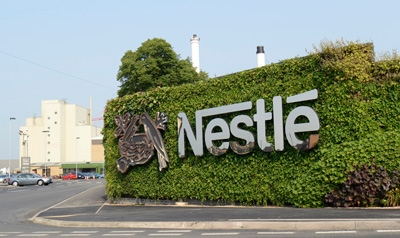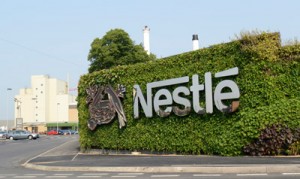Nestlé to tackle human rights abuses in its seafood supply chain
- Like
- Digg
- Del
- Tumblr
- VKontakte
- Buffer
- Love This
- Odnoklassniki
- Meneame
- Blogger
- Amazon
- Yahoo Mail
- Gmail
- AOL
- Newsvine
- HackerNews
- Evernote
- MySpace
- Mail.ru
- Viadeo
- Line
- Comments
- Yummly
- SMS
- Viber
- Telegram
- Subscribe
- Skype
- Facebook Messenger
- Kakao
- LiveJournal
- Yammer
- Edgar
- Fintel
- Mix
- Instapaper
- Copy Link
Posted: 24 November 2015 | Victoria White | No comments yet
Nestlé has published an Action Plan on seafood sourced from Thailand following concerns about labour and human rights abuses in the company’s seafood supply chain…


Nestlé has published an Action Plan on seafood sourced from Thailand following concerns about labour and human rights abuses in the company’s seafood supply chain.


The Action Plan takes into account recommendations from global NGO Verité, an organisation which works with companies to help understand and tackle labour issues. Verité was commissioned by Nestlé earlier in 2015 to investigate allegations of forced labour and trafficking in the recruitment, hiring, employment and living conditions of foreign migrant workers in the Thai fishing industry.
Verité has published a report that includes recommendations not only for Nestlé, but also for suppliers and government authorities. Findings include accounts from some workers who were subjected to deceptive recruitment, transported to Thailand under inhumane conditions, charged excessive fees leading to debt bondage in some cases, exposed to exploitative and hazardous working conditions, and, at the time of assessment, were living under sub-par to degrading conditions. Nestlé says the findings are not unique or limited to its own supply chain. It said virtually all companies sourcing seafood in the Thai seafood sector are exposed to the same risks.
Nestlé Action Plan focuses on 10 key activities
The seafood Action Plan focuses on 10 key activities, all of them with the clear objective to strengthen the mechanisms to prevent the company’s suppliers entering into any practice that could lead to labour and human right abuses.
Those activities will include establishing a migrant workforce emergency response team, setting up a grievance mechanism, providing training for captains and boat owners operating in the industry, raising awareness about minimum required labour standards, establishing better traceability of raw materials and enabling verification of labour standards in fishing vessels.
Commenting on the release of the Action Plan, Executive Vice President of Operations at Nestlé, Magdi Batato said, “Nestlé is committed to eliminating forced labour in our seafood supply chain in Thailand, working alongside other stakeholders to tackle this serious and complex issue.”
“We believe that our Action Plan will help improve the lives of those affected by unacceptable practices. This will be neither a quick nor an easy endeavour, but we look forward to making significant progress in the months ahead.”




